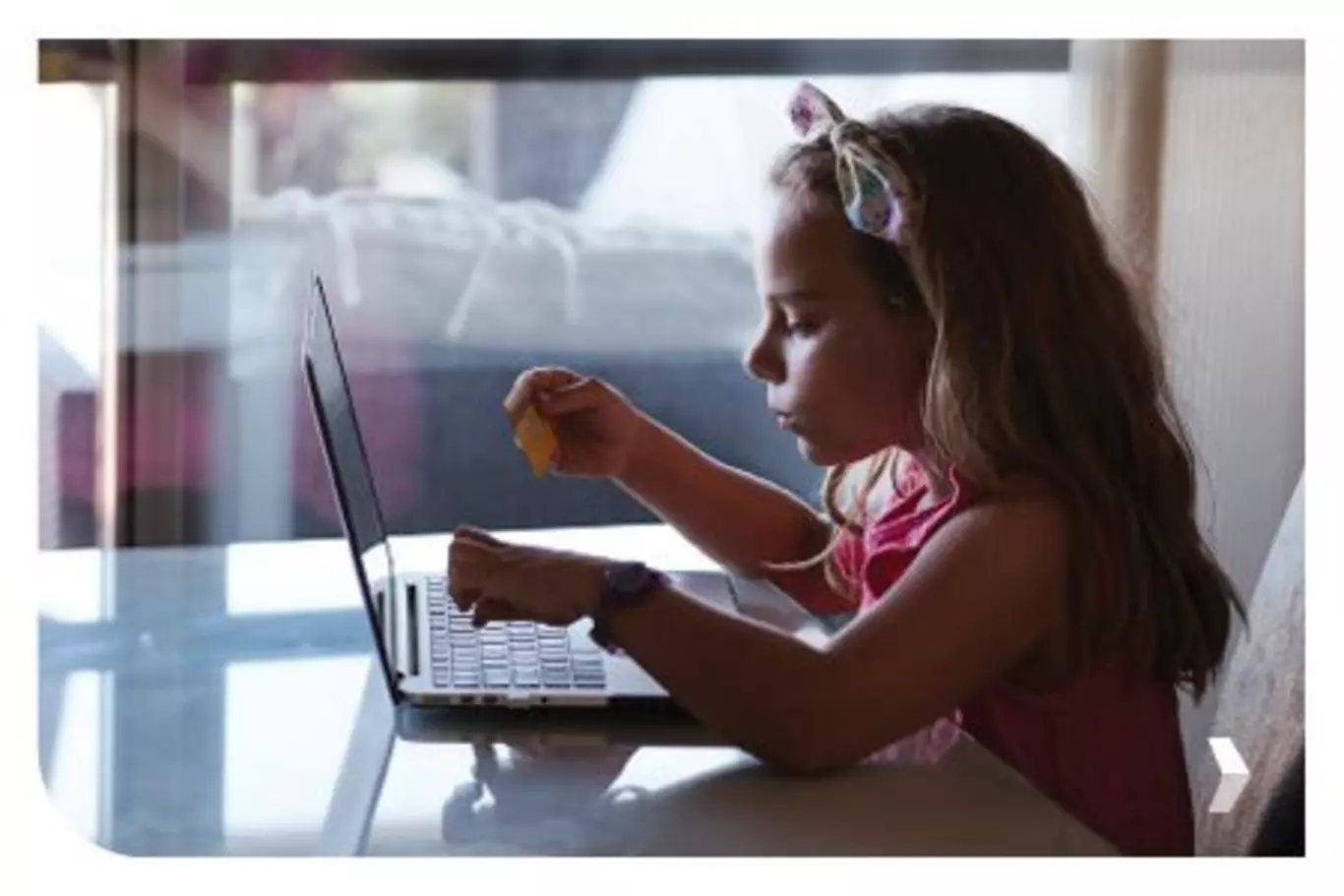< Back to News & Insights
Preparing for the Future: How Financial Literacy Helps Kids Become Homeowners
Rodd Miller, CMA, Branch Manager/ Sr. Mortgage Advisor/Reverse Division ManagerOctober 21, 2021 — 5 min read
Financial literacy is one of those important subjects that can change the course of your child's future. Surprisingly, though, this is often an area of weakness for kids in the USA. Here's how you can help your kids learn more about personal finance to prepare them for future homeownership. Some of these factors are purely psychological. Adults with poor financial literacy tend to make a lot of assumptions about their personal finances, often feeling either under- or over-confident in their ability to qualify for loans. For example, many people assume that their student loans automatically disqualify them from getting a mortgage, but that's not actually true.
There are more practical ways that financial literacy can impact an adult's ability to make smart home buying decisions. For example, it's helpful to understand the ways that national economic conditions impact the housing market and mortgage interest rates. More basic topics make a difference as well. Simply understanding the financial benefits of homeownership can play a significant role in a person's decision to buy a house.
Other topics, like debt and budgeting, are key to all aspects of financial health that ultimately impact homeownership. While macroeconomics may not be the easiest concept for an elementary or middle schooler to grasp, any kid who can add or subtract will understand budgeting. This is a good place to start.
Some of these factors are purely psychological. Adults with poor financial literacy tend to make a lot of assumptions about their personal finances, often feeling either under- or over-confident in their ability to qualify for loans. For example, many people assume that their student loans automatically disqualify them from getting a mortgage, but that's not actually true.
There are more practical ways that financial literacy can impact an adult's ability to make smart home buying decisions. For example, it's helpful to understand the ways that national economic conditions impact the housing market and mortgage interest rates. More basic topics make a difference as well. Simply understanding the financial benefits of homeownership can play a significant role in a person's decision to buy a house.
Other topics, like debt and budgeting, are key to all aspects of financial health that ultimately impact homeownership. While macroeconomics may not be the easiest concept for an elementary or middle schooler to grasp, any kid who can add or subtract will understand budgeting. This is a good place to start.


Why Parents Should Take Charge of Their Kids' Financial Literacy
Chances are that, as a kid, you were taught never to discuss money, politics or religion in polite conversation. While there have been some shifts on this recently, particularly with respect to discussing salary with coworkers, it's still largely considered taboo to talk about money in the USA. That taboo might not be doing us any favors. According to Freddie Mac, the USA actually lags well behind other developed nations in terms of financial literacy, even though we tend to be at the top of the heap when it comes to personal wealth. It's clear that most American kids aren't getting actionable information about money management in school. It's mostly up to parents to educate their kids about personal finance, but there can be advantages to that. The way we use money is deeply personal, and it also pervades all aspects of our lives in subtle ways. Talking about it in a classroom might not be very effective--thinking about personal finance in theory is much different from the practice of actually managing one's money.Financial Literacy and Homeownership: How They Intersect
Why is it so important that you start talking to your kids about money now? Can that really have an impact on their future ability to buy a home? Yes! There are actually several ways that financial literacy can be a major factor in whether a person becomes a homeowner. Some of these factors are purely psychological. Adults with poor financial literacy tend to make a lot of assumptions about their personal finances, often feeling either under- or over-confident in their ability to qualify for loans. For example, many people assume that their student loans automatically disqualify them from getting a mortgage, but that's not actually true.
There are more practical ways that financial literacy can impact an adult's ability to make smart home buying decisions. For example, it's helpful to understand the ways that national economic conditions impact the housing market and mortgage interest rates. More basic topics make a difference as well. Simply understanding the financial benefits of homeownership can play a significant role in a person's decision to buy a house.
Other topics, like debt and budgeting, are key to all aspects of financial health that ultimately impact homeownership. While macroeconomics may not be the easiest concept for an elementary or middle schooler to grasp, any kid who can add or subtract will understand budgeting. This is a good place to start.
Some of these factors are purely psychological. Adults with poor financial literacy tend to make a lot of assumptions about their personal finances, often feeling either under- or over-confident in their ability to qualify for loans. For example, many people assume that their student loans automatically disqualify them from getting a mortgage, but that's not actually true.
There are more practical ways that financial literacy can impact an adult's ability to make smart home buying decisions. For example, it's helpful to understand the ways that national economic conditions impact the housing market and mortgage interest rates. More basic topics make a difference as well. Simply understanding the financial benefits of homeownership can play a significant role in a person's decision to buy a house.
Other topics, like debt and budgeting, are key to all aspects of financial health that ultimately impact homeownership. While macroeconomics may not be the easiest concept for an elementary or middle schooler to grasp, any kid who can add or subtract will understand budgeting. This is a good place to start.

How Parents Can Help Enhance Their Kids' Financial Literacy
Most financial literacy advice for kids focuses on the basics of saving money or getting an allowance. But if you really want to help your kids understand the consequences of their financial decisions, you can take things a few steps further without going overboard. Here are some ideas for how you can get the ball rolling for kids of all ages who haven't been exposed to much financial literacy education yet:- Give your kid a budget for clothes and school supplies: Help your kids understand budgeting and consequences by giving them a set amount of money to spend on new clothes and school supplies. Rather than just giving them cash and letting them make the final purchasing decision, though, have your kid make a list of what they want. Go over this list together so you can check their math and give final purchase approval. This review gives parents a great opportunity to talk about budget-focused decision-making. If your kid went over budget, why, and what are they willing to cut or compromise on? If they're under budget, do they plan to save the extra cash or spend it on something else? This exercise is useful for two reasons: it makes abstract concepts real, and it also helps kids feel more in control over things that are important to them.
- Talk to your kids when making big purchases: Major purchases are often presented to kids as something that just happens. Dad comes home in a different car one day, or mom lets everyone know that the family is moving to a new house. Instead of springing these things on them, explain what's involved. If you're shopping for a new car, for example, talk to your kids about your budget and how you decided on your final selection. For older kids (high school and up), consider keeping them in the loop about your mortgage application so they can become familiar with the process.

- Make it personal: Another way to help kids understand the concept of budgeting is to bring them in on decisions and allow them to think critically about the best course of action. Instead of planning a family vacation on your own, for example, sit your kids down and ask them what they want to do. Give them options and explain how and why they differ in price. If they choose an expensive vacation option, explain that this decision will have other consequences, such as having to wait another year for their much-desired bedroom makeover. Kids often lack a sense of agency over things like vacations. As a result, they can both fail to appreciate the vacation and get the impression that money is a finite resource. Allowing your kids to choose their own priorities is another great way to put financial literacy into practice.
Keywords:
Categories
Archives
Recent Posts
- Use Your Tax Refund to Make Your Mortgage Work For You
- What’s the ‘Lock In’ Effect? Break Free Using Home Equity
- Want to Boost Home Value? Home Renovation Costs Baked into Your Mortgage
- The Blueprint to Building Credit for First-Time Homebuyers
- Which is Better for You? Standard vs. Itemized Deductions
- I Bought a Home: What Documents Will I Need for Taxes?
Getting started >
You bring the dream. We'll bring the diagram.
There’s a financing solution for just about every situation.
{ include "_components/button" with {
primary: false,
value: "Let's go get it",
link: '/mortgage-loans',
icon: true
} %}
What our clients say >
I felt like I was treated like family, great communication and helping me with any questions I had.
Getting started >


You bring the dream. We'll bring the diagram.
There’s a financing solution for just about every situation.
Find an advisor >
Where does your sun shine? Find your local advisor.
Enter your city or state to see advisors near you.
Careers at PacRes>

We’re growing. Grow with us.
Careers at PacRes reward excellence in mortgage banking.
Build a better tomorrow